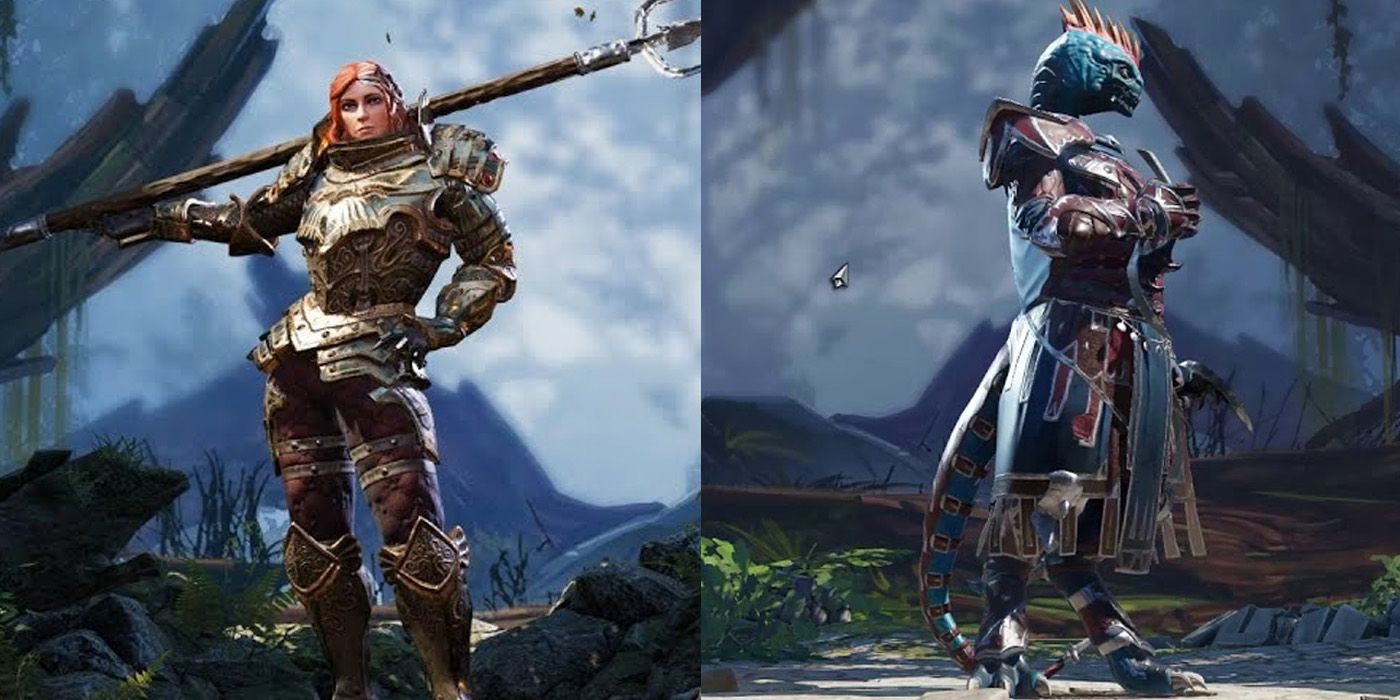
Gamers who plan on trying Divinity: Original Sin 2 might feel slightly overwhelmed in as early as Character Creation. After all, this Larian Studios game weaves the core narrative with personal stories of not just its pre-made characters but also a story dedicated to a custom character the player creates. Additionally, the wealth of options to choose from can make the RPG seem oddly complex for both newcomers and veterans to the genre.
However, fans of the game know that choices in Character Creation can help define a player’s intended experience. Moreover, players can find concepts of Attributes, Abilities, and Talents easier to comprehend with a bit of dissection. After reading this Guide, Original Sin 2 players may find it much easier to create outstanding characters for the beloved title.
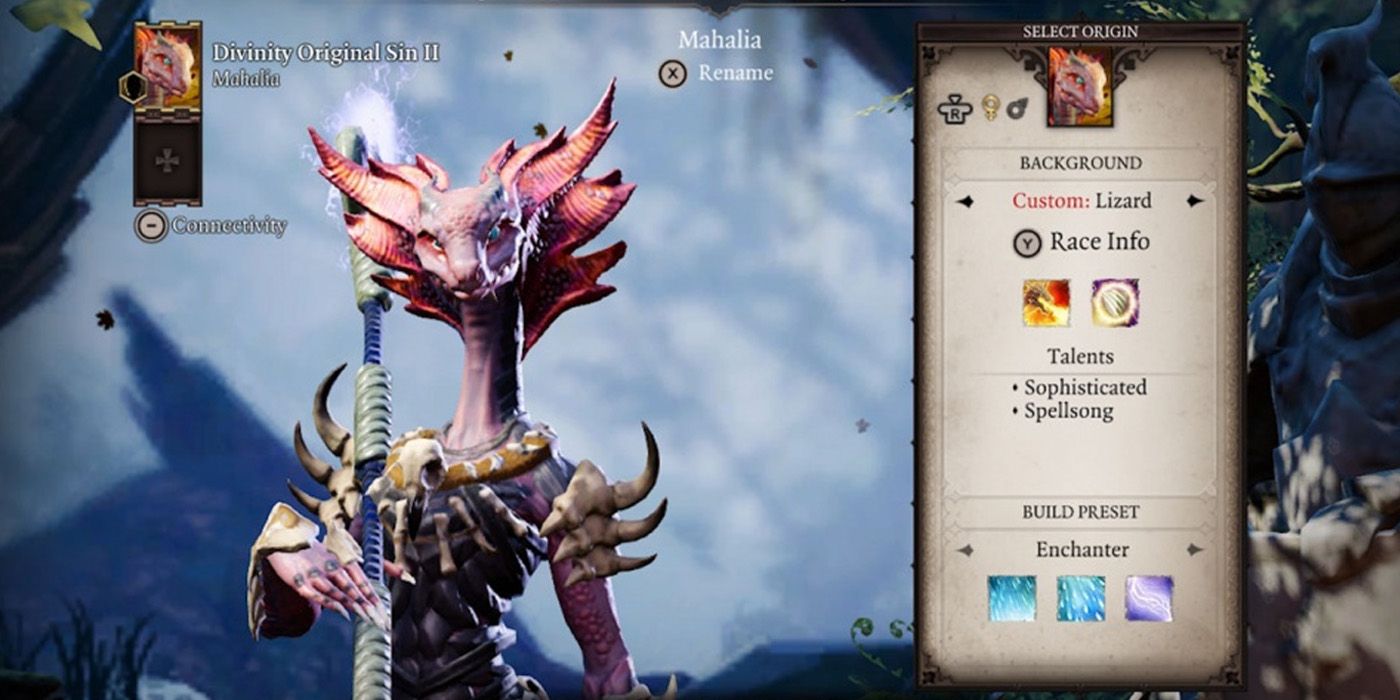
As with any RPG, a journey of a thousand miles starts with Character Creation. In Original Sin 2, this Character serves as the player’s “avatar” in the world of Rivellon. Granted, players can easily switch perspectives of different characters when talking with each other or with NPCs. However, it’s always the player’s Character (premade or custom) that the story builds its narrative around. In turn, Character Creation more or less dictates the “central figure” of a player’s Original Sin 2 playthrough.
Before players officially start their playthrough, they need to get through certain elements of Character Creation. These details are the following:
Origins: This declares if a player is using a pre-made character or a character of their own creation. Essentially, there are six (6) Pre-Made Origins and an option for one (1) Custom Origin. Pre-Made Origins have their own story and personal stake in Original Sin 2. Meanwhile, the Custom Origin has a unique story of their own. Origins don’t affect the stats of a character.
Classes: In Original Sin 2, a Class is only as important as their starting set of bonuses and Skills. There are 14 Starting Classes to choose from, although players are free to diverge or continue with the playstyle of the Class they have chosen.
Tags: In the game, Tags serve as a “declaration” of the nature of the player’s character. They only indicate hints of what to expect in terms of dialogue (in special cases), but these in no way affect stats.
Attributes: As with an RPG, these Attributes serve as the “innate qualities” that a creature possesses. These determine how strong, agile, or smart they are as a creature.
Abilities: These act as Secondary Attributes that serve as the means through which a creature utilizes their Attributes in the context of socialization or combat. In turn, there are Civil Abilities that help creatures charm, persuade, and even intimidate foes. Likewise, Combat Abilities determine how creatures act when fighting.
Talents: Talents serve as a special “perk” that a creature possesses that is innately unique to themselves. These Talents can exemplify an existing quality or even denote that the creature itself is special. These Talents range from the ability to talk to animals, to being able to fling spells from afar.
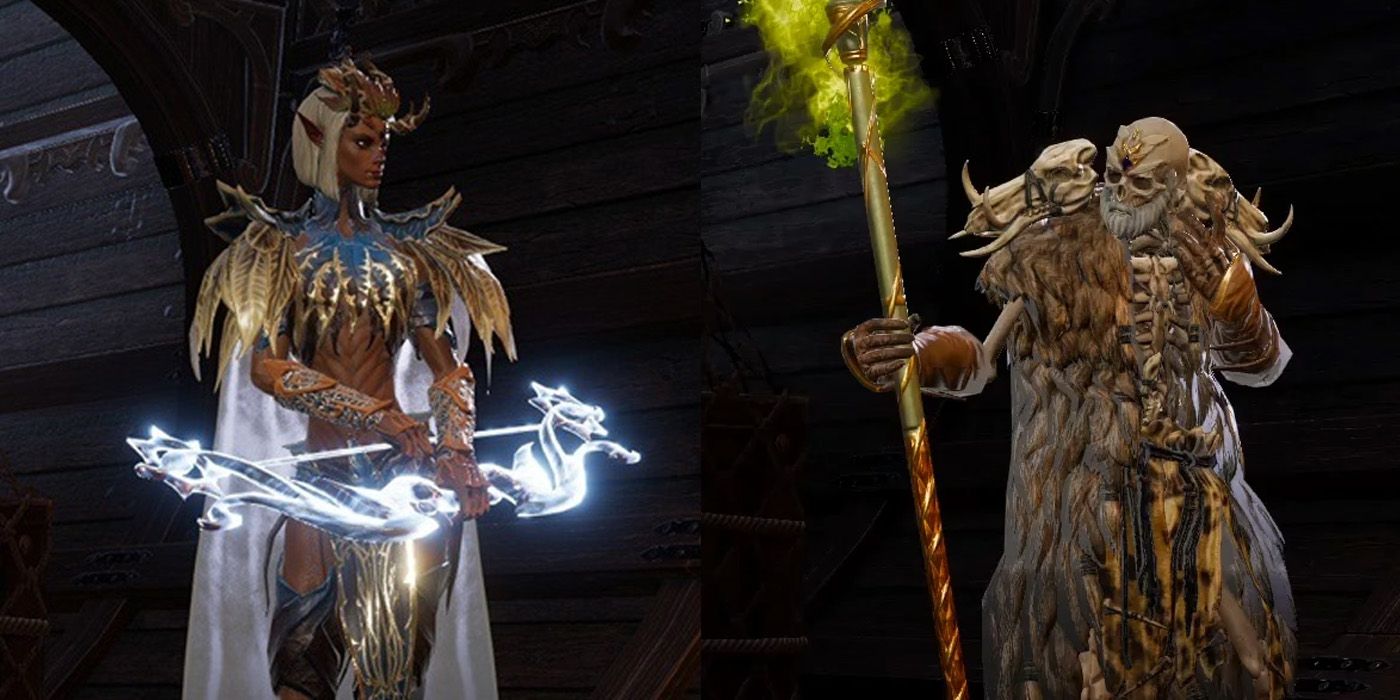
Players praise Original Sin 2 for its deep take on narrative – and newcomers might slowly get to understand this reasoning within the first few minutes of the game. In fact, others say Larian Studios proves its mastery of narrative as early as character creation.
As players might remember, the Origin serves as the primary way for a character to “enter” the world of Rivellon. Essentially, the Origin is the Original Sin 2 equivalent of an RPG Background. This determines how they see the world and how the rest of the world sees them.
Unlike other Backgrounds in RPGs, the Origin in Original Sin 2 can determine the overall path a character will take in the game’s narrative. Of course, “determine the path” doesn’t mean a character can’t divulge from it. However, this is to say an Origin in the game is a complete story solely dedicated to that type of character. Here are other things to consider:
Innate Abilities: All Origins in the game contain a unique ability, or Skills their character possesses that ties into their story or theme.
Unique Tags: All Origins in the game have tags. These are essentially “labels” that dictate what type of person they are, or if there are special considerations with regards to their character’s status or background.
Unique Dialogue: All Origins in the game have unique dialogue. This means, aside from their Civil Abilities, a player can complete quests and make choices in ways exclusive to their Origin.
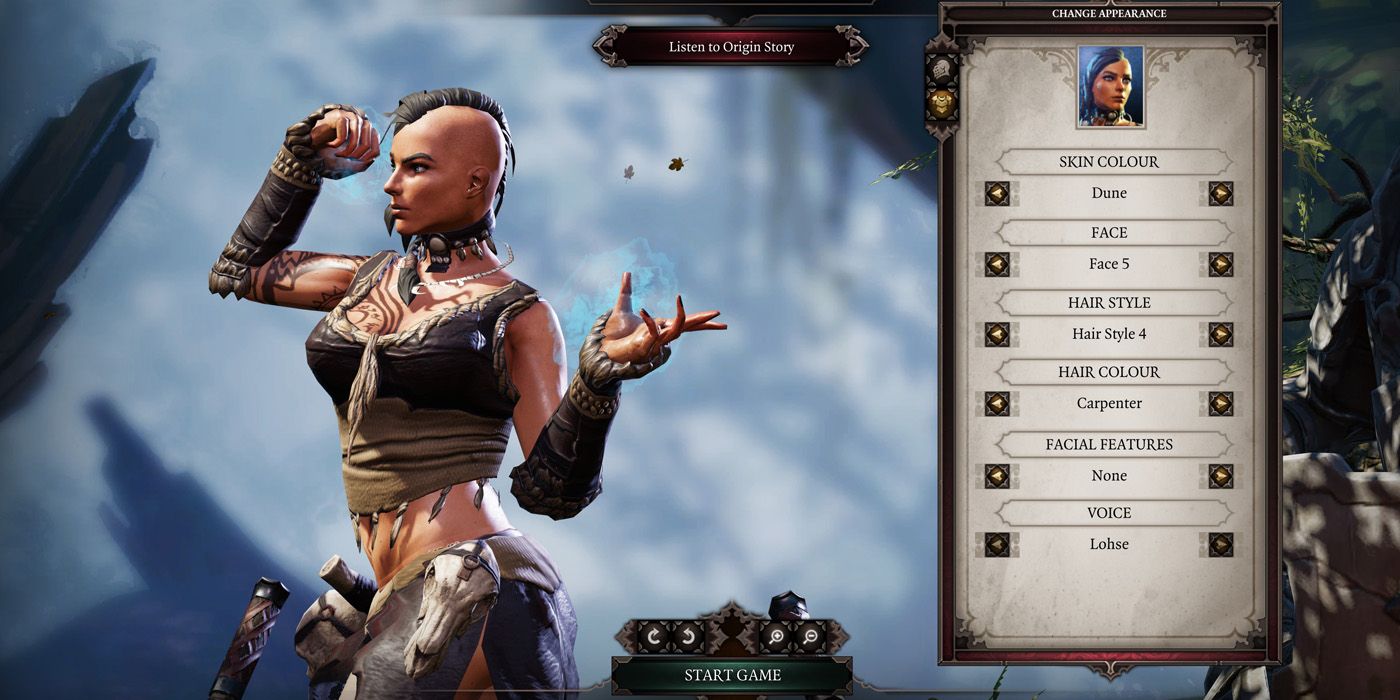
Of the two Origin types, it’s perhaps the Custom Origin that can appeal to the new player. After all, what better way to experience the game than with a character to call their own, right? Unlike a Pre-Made Origin, getting a custom character lets players experience Rivellon from an outsider’s perspective. Here are some considerations:
Players want to explore the game as themselves. With the Custom Origin, players can create their own character and be a part of the Original Sin 2 experience as an outsider. This allows them to interact with Rivellon without worrying about things such as reputations, grudges, or even tales of revenge.
Players want no hand in NPC decisions. With a Custom Origin, players only have interactions with NPCs. As such, they’re free to experience the full extent of their Companions’ (and the other NPCs’) agendas without any interference. While players can make dialogue choices that influence another character, it’s ultimately that character that determines their course in the playthrough’s narrative.
Dome Of Protection (Special Skill). All Custom Origins come with a Skill called the Dome of Protection (Special Skill). This doesn’t cost any Memory points and is a handy means to boost defenses – perfect for beginners.

Of the kinds of Origins, it’s the Pre-Made Origin that will tickle the imagination of lore lovers. After all, this allows them to dictate what exactly they want to happen to the story of the “real” cast of Original Sin 2. Unlike a Custom Origin, a Pre-Made Origin sends players straight into the intense interpersonal drama these characters have that directly tie into the fate of Rivellon. Here are some considerations:
Players want to see the world in the eyes of a native. Unlike a Custom Origin, a Pre-Made Origin allows players to look at Rivellon as someone who lives there. This comes in the form of special narrations unique to that particular character. Aside from their entertaining appeal, these unique narrations flesh out that character’s worldview.
Players want their character to be the star. When playing a Custom Origin, it’s the Custom Origin that becomes the star of the narrative. The case is the same when playing a Pre-Made Origin. Whoever the player chooses as their starting character will be the focal point of the story’s plot. This gives players a playthrough where their character has the most valid reason to pursue their agendas in the game.
Unique Tag. Unlike a Custom Origin, all Pre-Made Origins have a unique Tag in the form of their name.
Unique Special Skill. Whereas all Custom Origins get a Dome of Protection (Special Skill), each Pre-Made Character gets a Special Skill unique to them. Not only do they tie into their themes and stories, but these Special Skills also aid in combat in unique ways.
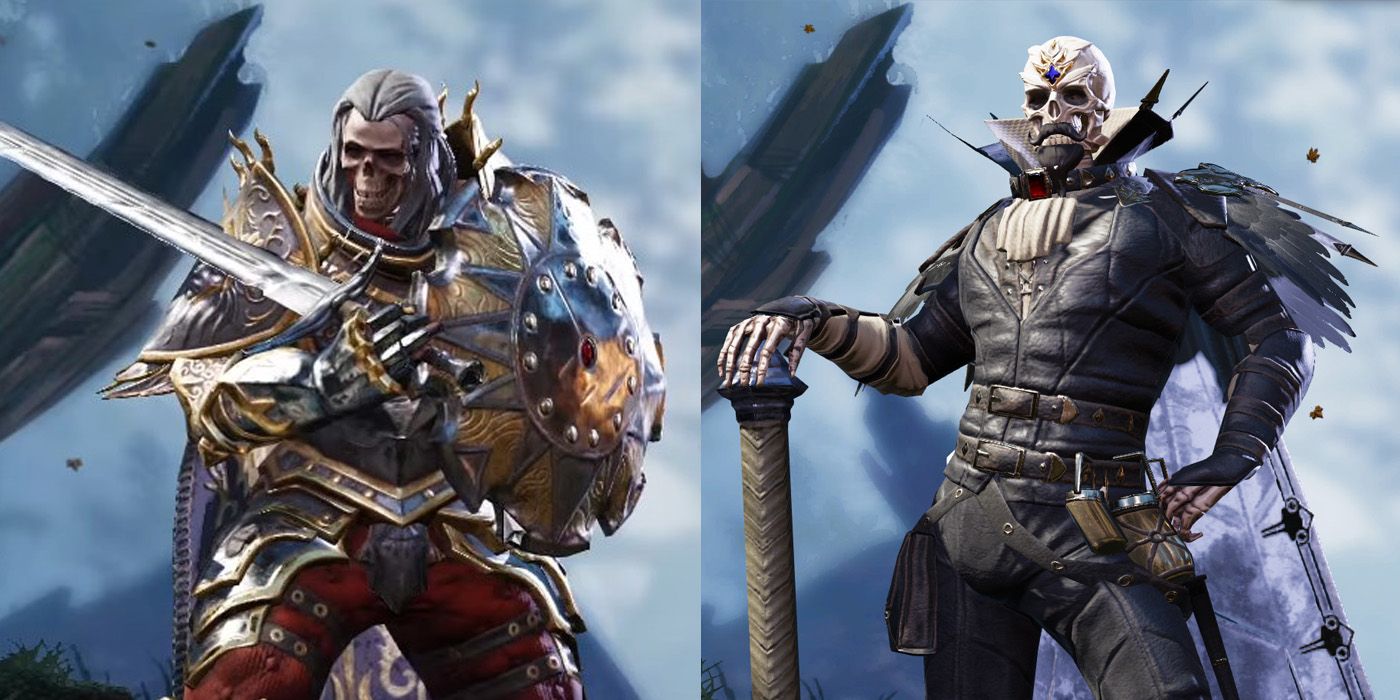
After selecting an Origin, players might wonder what exactly the Class label entails with regards to their character. Does this mean Original Sin 2 has some form of multiclass or class selection system? Not necessarily! In fact, Original Sin 2 placed Classes as part of Character Creation to help players get a quick start instead of starting from scratch with all the variables in the game. Here are some factors:
Starting Classes save players from trouble. In RPGs, it’s often a game-breaking mistake whenever players disregard or ignore an important stat in character creation… just because the game gives them the option to ignore them. With Starting Classes, players of Original Sin 2 can choose a playstyle that suits them that still guarantees balanced play.
Starting Classes don’t remove freedom from players. Meanwhile, Larian Studios also gives veterans a chance to tinker with their character as soon as character creation. When players click each section in their Preset, players can customize each of these stats to their heart’s content. And given how players still have control when they level up, this means Starting Classes don’t force players to their chosen Class.
It’s not necessarily important “what” Class a player chooses as they can change almost any aspect of their stats anyway. Rather, these Classes determine what sort of playstyle a player is likely comfortable with. In turn, it might help players to understand what their Class choice says about their playstyle – or what their preferred playstyle says about their Starting Class. Here are some things to consider:
Melee Role (Battlemage, Fighter, Inquisitor, Knight). Given their penchant for melee, these Classes are fairly uncomplicated to use and are straightforward in terms of their goals. These Classes fit players who want to fight enemies head-on and need the right kind of Skills to smash, slice, and tear through their foes.
Ranged Role (Enchanter, Wizard). These Classes serve as the magic-user archetypes in RPGs. In turn, they focus on casting powerful Skills in their turn in exchange for weaker bodies. In turn, they most likely position themselves in the rear and only use melee in emergencies.
Tactical Role (Ranger, Rogue, Wayfarer). Players who want to maximize their damage output will likely resort to a more tactical Class. Unlike melee and ranged roles, these tactical Classes rely on precision to deal a ton of damage without sacrificing defense.
Support Role (Cleric, Witch). Unlike other Starting Classes, support-leaning Classes focus on debuffing enemies and buffing allies to gain the advantage in combat. They generally lean towards Classes that are innately healers or hexers, sorta like the Priest and Warlock dichotomy of World of Warcraft.
Gimmick Role (Conjurer, Metamorph, Shadowblade). Unlike other Classes, these have a special “gimmick” that set them apart from other characters. These include abilities that allow them to summon minions or change parts of their bodies.
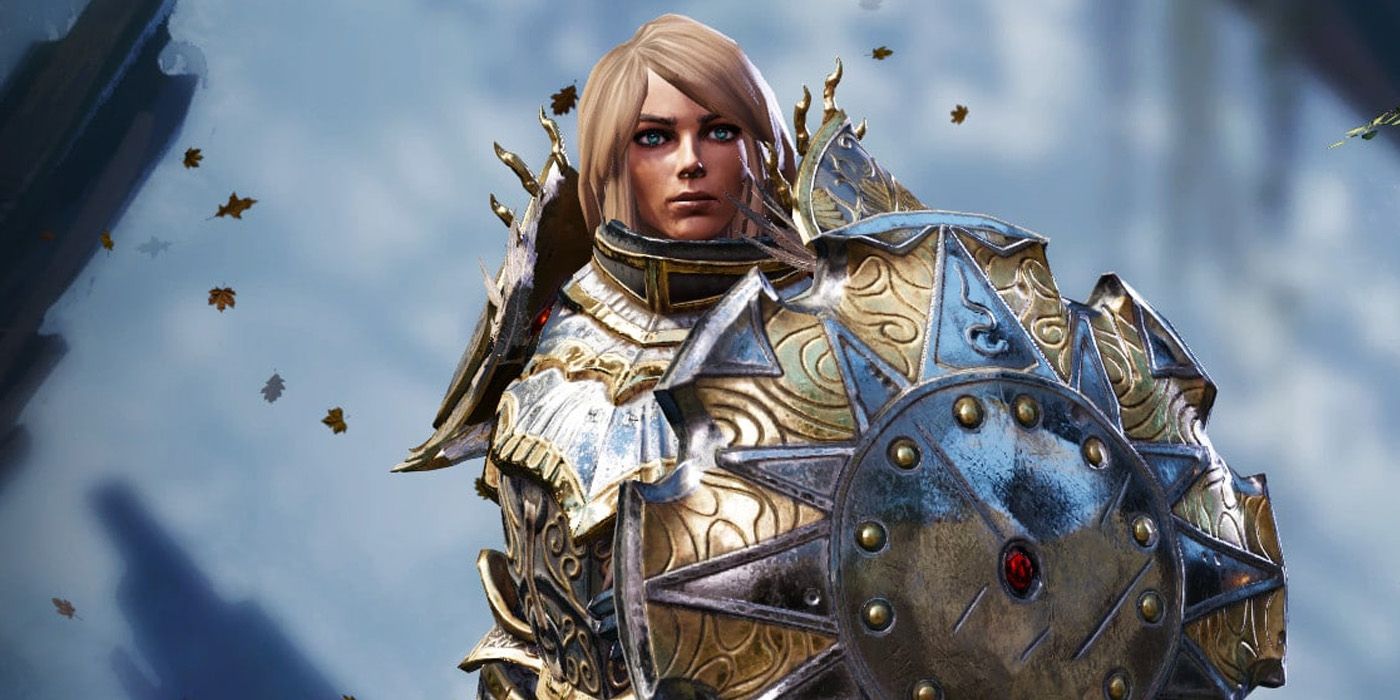
Players who want to study the intricacies of their chosen Starting Class might want to tinker with the Presets available for their character. Essentially, Presets simply declare the kind of stats presently attached to their character. Once players agree on their Preset, their characters begin with these stats. Here are some considerations:
Newcomers should probably leave them alone. Players new to Original Sin 2 might want to leave those Presets alone for a later playthrough. Tinkering with them now might result in an imperfect build that could spell trouble early on and ruin the experience.
Veterans might want to experiment for harder game modes. Players who played Original Sin 2 for a couple of hundred hours will likely get the overall “flow” of the game. In turn, they might want to start a playthrough at a more challenging difficulty, or just play around with the game. If such is the case, players should mix and match the Preset’s contents to their heart’s content.

Like in most RPGs, Attributes represent the innate qualities of a character in the game. Unlike Skills that can be learned, Attributes are naturally embedded into the body and mind of the person. In turn, training these Attributes more or less improves a lot of aspects in a character’s life. In Original Sin 2, improving Attributes can affect certain aspects of a character as well. Here are considerations:
Strength. This Attribute determines physical effects such as Strength-based damage, carrying capacity, and the maximum weight needed to move objects both physically and via Telekinesis. Strength also determines the kind of Heavy Armor a character can wear.
Finesse. This Attribute ties closely with Finesse-based weapons and Skills, including bows, crossbows, and even daggers. Improving upon Finesse allows characters to wear better Leather Armor and boost their Finesse-based damage.
Intelligence. This Attribute ties heavily with Intelligence-based weapons (staves) and Skills. In turn, it’s a great determinant of the strength of most elemental Skills in the game. Boosting Intelligence increases Magical Armour and the damage of Intelligence-reliant Skills.
Constitution. This Attribute determines the overall Vitality of the character. Improving Constitution increases a character’s Vitality and the kinds of shields they can use.
Memory. This Attribute determines how many Skills a character can memorize at any point in time. Most Skills require one Memory Slot but others require more Memory Slots to use. Spellcasters and Skill-heavy characters need Memory to accommodate more Skills in their arsenal.
Wits. This Attribute contributes heavily to fast-paced thinking and interaction. Increasing Wits improves overall Critical Chance, how quickly characters can find traps and treasure, and how soon characters can act in combat (Initiative).
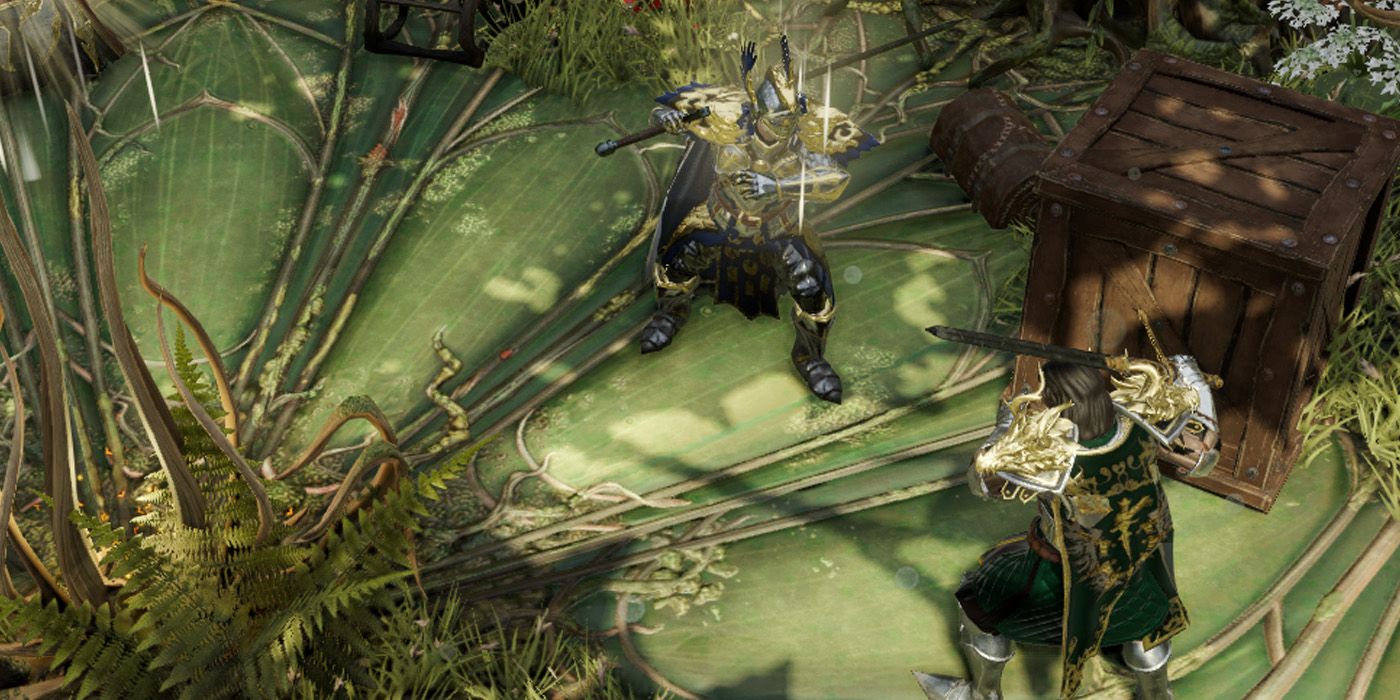
As the name implies, Combat Abilities represent a character’s specialization in any field of combat. Increasing any Ability under Combat Abilities can grant a variety of effects for characters. Moreover, Combat Abilities also influence the way characters perform weapon-related Skills. Here are considerations:
Determine a Weapon and stick with it. Characters can wield a variety of weapons in combat – from swords to axes, staves to bows, and even wield weapons with two hands or one in each. In turn, Weapon Abilities determine how well players can do Dual Wielding, Ranged, Single-Handed, and Two-Handed. Each of these weapon types affect player performance differently, so players need to choose the kind of weapon their character wants to use on the get-go.
Defense is more important than players realize. Aside from Weapon Abilities, Defence Abilities determine the endurance level of characters in combat. Traits here can help characters with damage mitigation (Leadership), strengthen healing (Perseverance), and even reflect damage (Retribution).
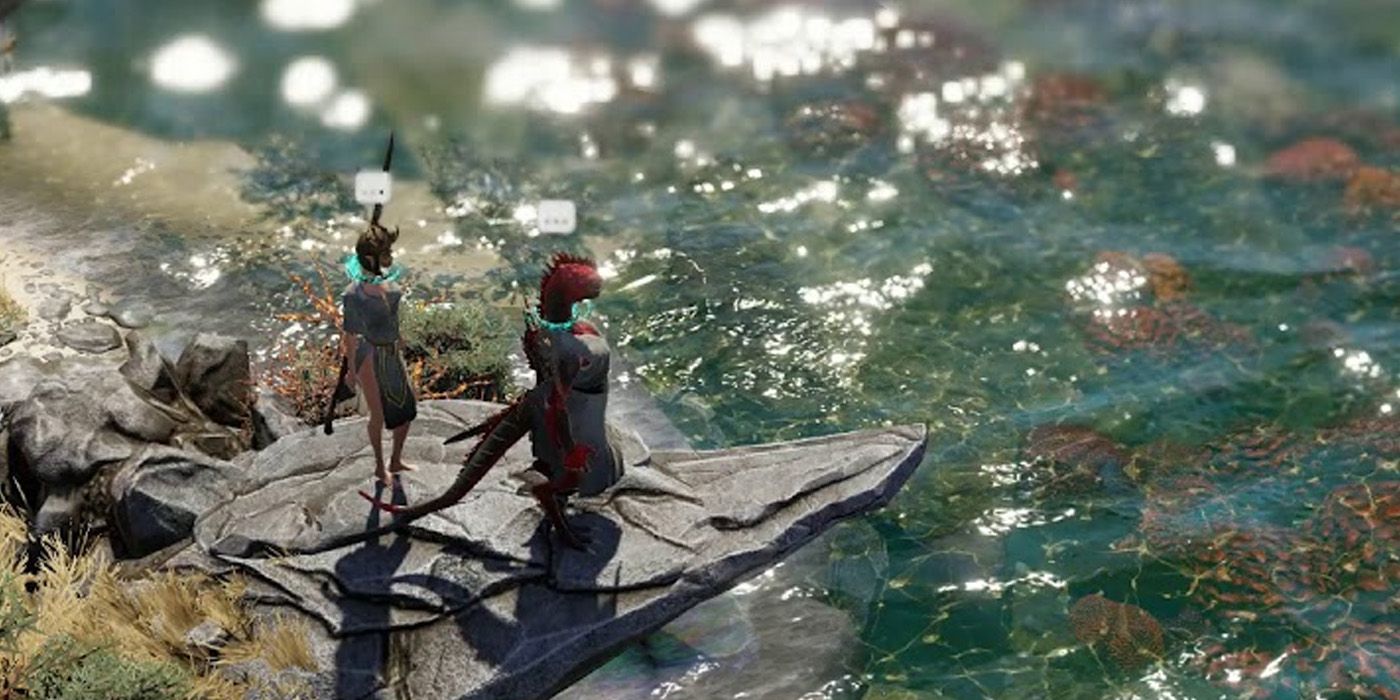
As the name implies, Civil Abilities represent a character’s way of socializing with people. Increasing Civil Abilities can help characters heavily in terms of dialogue, loot acquisition, and even when it comes to selling items. Here are considerations:
Make money with Civil Abilities. Players who want to make the most out of their buy-and-sell capabilities need Bartering, Lucky Charm, and Loremaster. Essentially, these Abilities improve their haggling to get better deals (Bartering) and even find extra loot (Lucky Charm). Moreover, Civil Abilities allow them to identify items and even enemies (Loremaster).
Stealth relies on Civil Abilities. Players who want to make stealth builds such as Rogues and Shadowblades need to boost their Thievery and Sneaking Abilities. Essentially, these help characters move faster and avoid detection (Sneaking), as well as steal and open locks much easier (Thievery).
Break the game with Telekinesis. Players of Original Sin 2 might be delighted to hear about the Telekinesis mechanic. This allows them to move various objects from one point to the next. Increasing the Telekinesis Ability further increases the range of which they can utilize this ability. And under the right hands, players can even tinker with the script of the game in funny instances.
Break dialogue with Persuasion. Players who want to do more “subtle” breaking in the game might want to improve Persuasion. Simply put, this Ability opens more opportunities for players in terms of dialogue. Moreover, this allows players to have more diplomatic options to convince any type of NPC to do something they usually don’t want to do.
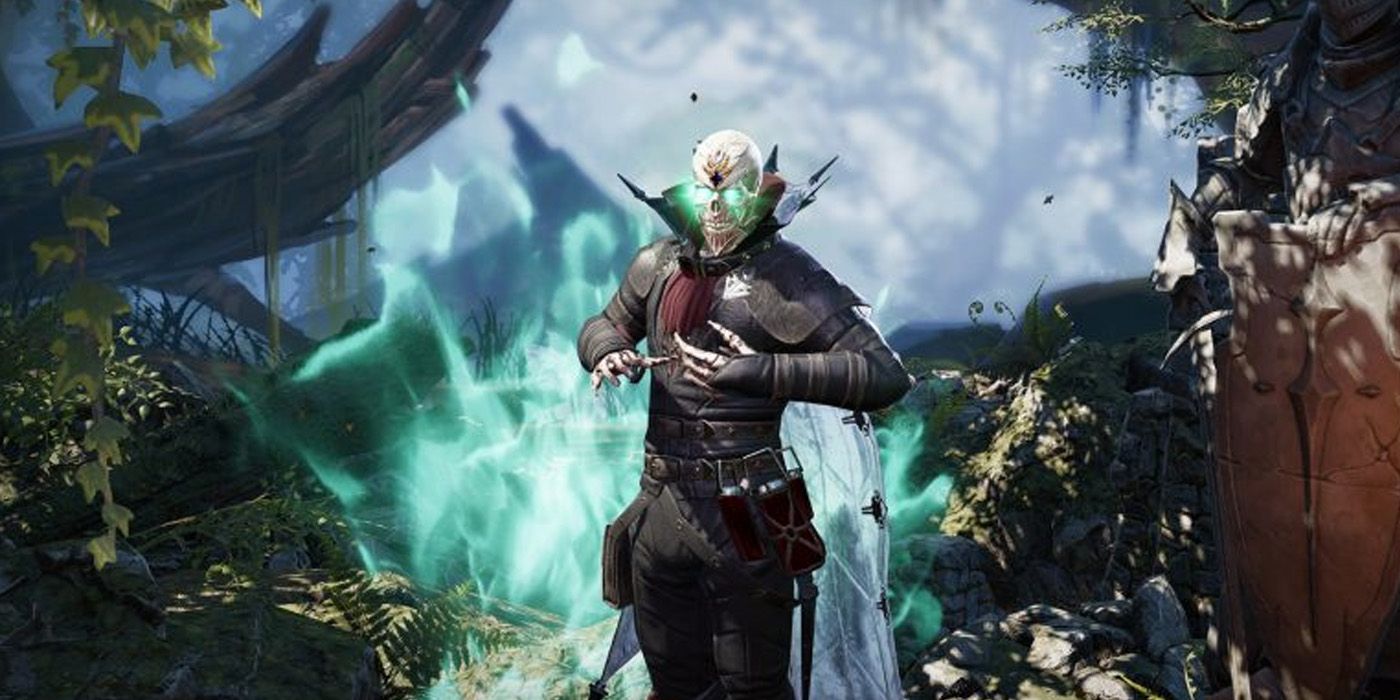
Aside from Presets, all characters gain access to what is known as Skills. These serve as the catch-all term for all sorts of special attacks a character can do, be it from their training in martial combat or their mastery of the magical arts.
Character Creation immediately gives players access to certain Skills that characters can use as soon as they start the game. Here are some considerations:
Starting Classes already provide set Skills. Thankfully, newcomers won’t have to worry about Skill synergies as their Starting Class will already provide a basic trio of starting Skills characters can use. These Skills serve as a decent “representation” of their themes and playstyles.
Skills can change throughout the game. Players don’t have to worry about their starting Skills, as these can change throughout the course of the game. It’s just that Starting Skills are necessary to help characters even the playing field against early-game opponents. Of course, players who want a challenge can start with just fewer than three (3) Skills.
Skill damage and bonuses get affected by other factors. In terms of statistics, Skill damage scales depending on various factors. Some Skill Schools scale their damage according to level or weapon type. Likewise, Skills gain bonuses depending on the Attribute associated with the Skill School.
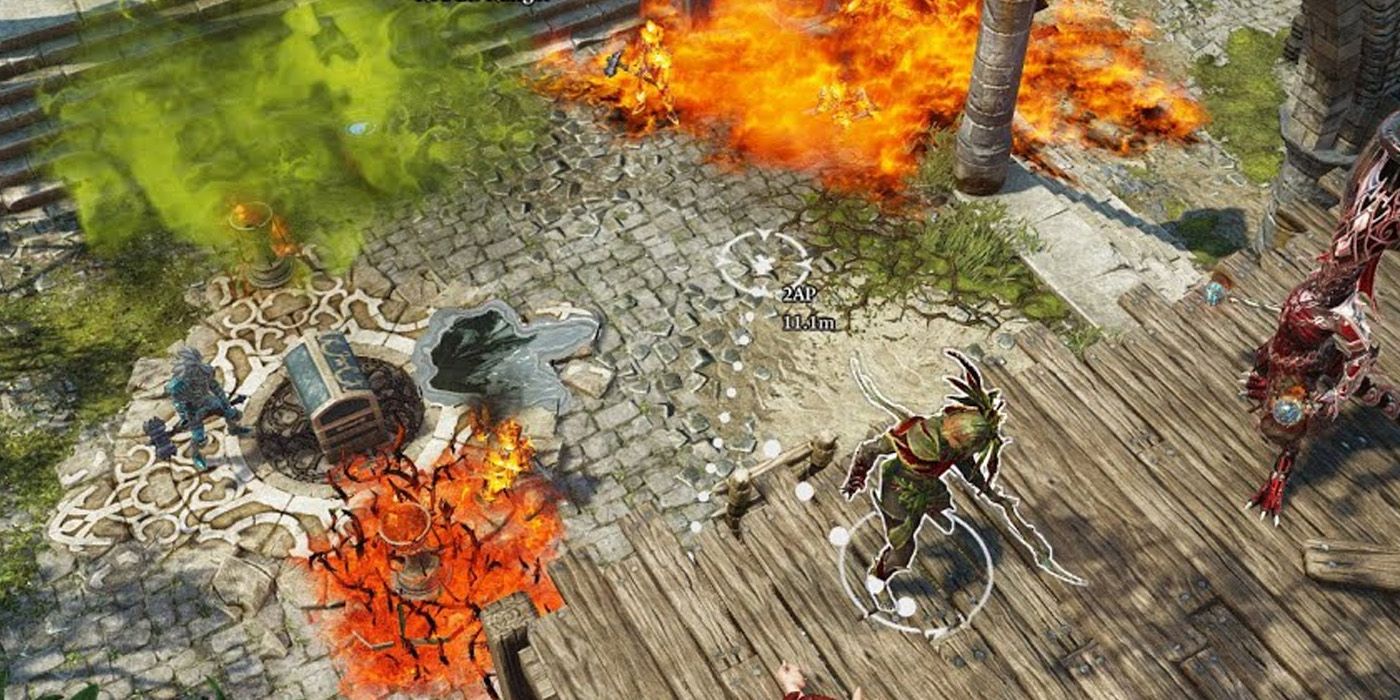
Unlike other RPGs, all characters in Original Sin 2 can use all the available Skills in the game – provided they have the training for it. In terms of technicalities, players learn Skills via Skill Schools. As players level up in Skill Schools, they can choose better Skills in their repertoire of attacks.
While all Skill Schools offer a great selection of Skills, some of these Schools do perform better in certain aspects of combat. In the considerations below, Skill Schools will be followed by (<Damage Scale>,<Bonus from Attribute>).
These Skill Schools serve as the conventional Spellcaster “elements” or “schools” in other classic RPGs. In turn, they mostly rely on taking advantage of an element or a natural occurrence in nature.
Aerotheurge (Level, Intelligence): This element represents air and denotes dynamism and movement. Its Skills usually Shock opponents, essentially stunning them. Other Skills have effects such as teleportation and mobility boosts. This works more as a supporting Skill to be learned in the game.
Geomancer (Level, Intelligence): This element represents earth and denotes stability and defense. Its Skills usually Poison enemies and create puddles of oil, perfect for combos with fire-based attacks. Other Skills can petrify opponents or give buffs related to defense. This works as a starting Skill School.
Hydrosophist (Level, Intelligence): This element is associated with water and represents fluidity. Its Skills generate the Wet status, perfect for combinations with electricity-based attacks. Its other Skills revolve around healing. This works as a starting Skill School for a healing-intensive character. Otherwise, this isn’t extremely important for offensive combat.
Necromancy (Level, Intelligence): This element represents the balance between life and decay. Its Skills usually involve inflicting various debuffs to opponents that grant damage-over-time and lifesteal. This works as a starting Skill School for magic-focused characters.
Pyrokinetic (Level, Intelligence): This element is associated with fire and represents action and aggression. Its Skills generate the Burn status and can interact with most environmental situations. This is a great starting Skill School that can complement most other Schools.
As the name implies, Weapon Specialists rely on certain weapons to boost their damage output. The strength of their attacks need both their special Attributes and their weapons of choice to be in-sync.
Huntsman (Ranged Weapon, Finesse): This School works perfectly with characters using a ranged weapon. Its Skills inflict the most damage from afar, and have a wide range of direct damage and AOE attacks.
Scoundrel (Dagger Weapon, Finesse): This School works with dagger uses who prefer to stay in the shadows. Its Skills usually rely on the game’s Stealth and Sneaking mechanic to maximize the character’s critical chance.
Warfare (Melee Weapon, Strength/Finesse/Intelligence): This School works with frontliners who prefer to let their weapons do the talking. Its Skills usually have Knock Down effects to stun enemies and leave them vulnerable to attacks. This School works best as a complementary for spellcasters, and a main school for tanks and physical damage dealers.
These Skills rely on special gimmicks to gain the advantage in combat. They have unconventional attacks or abilities that usually enable them to hold off on their own. However, their reliance on these gimmicks make them a bit more technical than usual to master.
Polymorph (Level, Strength): This School relies on changing parts of the user’s body to gain various advantages. As such, Polymorph Specialists can have stronger melee attacks or suddenly attack from afar. Likewise, as they grow, their Skills may even change the nature of their targets as well. It’s a technical starting School that can be difficult to master, but worth the entertainment.
Summoning (Level, Summoning Ability): This School relies on summoning minions to do the caster’s bidding. As such, its abilities involves casting various creatures and even elemental totems to do damage. It’s a great starting School for characters who want to focus on summoners and having as many allies in the team as possible.

Given the many number of Skill Schools in Original Sin 2, it might take too long to provide the tactical advantages and disadvantages of each available Skill. However, players don’t necessarily have to go blind when it comes to choosing favorable Skills for their character in Character Creation.
Players shouldn’t rely on the technical statistics for Skills. Rather, players need a change of perspective and choose Starting Skills based on these criteria:
Consider Memory Cost: When choosing Skills manually, consider choosing a Skill that has a reasonable Memory cost for their effect. Sometimes, having more Skills to use instead of having one “big-but-situational” Skill can help increase the chances of survival.
Consider AP Cost: Aside from Memory Cost, players need to consider just how much AP would that particular Skill cost to cast. Remember, characters only work with a set number of AP per turn for all their actions – including moving. In turn, the lower the AP cost, the better.
Consider synergy with other Skills. Players who will choose their starting Skills need to consider if their Skills synergize with each other. This is why certain Skill Schools work better with each other, as their interactions generate devastating damage to enemies. These include Geomancer and Pyrokinetic, as fire causes puddles of oil to explode.

Aside from Preset Attributes and Abilities, characters also gain access to a Talent during Character Creation. Essentially, these Talents give players a unique perk or quality that can give them a huge advantage in some areas of the game – be it in socialization, in combat, or even specific aspects of combat. Here are considerations:
Talents serve as manifestations of personality quirks. Granted, anyone can learn anything with enough time, and they may even get smarter or stronger with the right training. However, a Talent is the equivalent of manifesting a hobby, an interest, or a peculiar aspect of one’s life to one’s benefit. This is akin to a person being talented in a life skill, or being “naturally” skilled at something.
Talents arrive in various levels. As with real life, characters in Original Sin 2 gain more Talents aside from the one they’ve just gotten in Character Creation. In fact, they can acquire more talents at Levels 1, 3, 8, 13, 18, 23, 28, and 33. However, while these level jumps seem near, it still helps to choose Talents wisely to ensure they remain as beneficial for as long as possible.
Talents may pose restrictions. While some Talents are naturally favorable to characters, other Talents provide great benefits with equally dangerous caveats. Players need to be wary if a Talent comes with a restriction or a limitation, as this can affect them in combat. For instance, while Glass Cannon starts each turn with Maximum AP, it also removes the benefits of Armour against statuses. Likewise, Lone Wolf provides a ton of benefits only if the player has a maximum of one Companion. Also, players can’t use Glass Cannon with Lone Wolf and vice versa.
While players can treat Talents as a “personal” process for their characters, those who want to gain instant benefits may want to take advantage of great Talents early on. Here are the most recommended Talents for newcomers to the game:
Comeback Kid: This Talent allows a character to “bounce back” from a fatal blow and end up with 20-percent Vitality instead of dying. Comeback Kid only works once per combat, but will come back whenever the said character dies and gets resurrected in combat.
Duck Duck Goose (req. Huntsman 1): This Talent lets a character evade Opportunity Attacks. Despite the short description, this Talent works wonders especially against melee enemies who most likely have the Opportunist Talent.
Far Out Man: This Talent increases the range of all scrolls and Skills by 2-meters – this essentially makes Spellcasters and long-ranged attackers as ranged powerhouses. The Talent works with almost any long-ranged build and affects all Skills that require a range.
Glass Cannon: As mentioned, this Talent starts any combat round with Maximum AP at the cost of Armour not defending them against statuses. This Talent works with AP-heavy characters, especially casters and Rogues. However, its Armour caveat leaves the character extra vulnerable, so when a Glass Cannon dishes out attacks, it better end up lethal.
Hothead: This Talent grants +10-percent accuracy and critical chance to the character as long as they’re at Maximum Vitality. In turn, this Talent works great with long-ranged attackers who take a while before taking a bit of damage.
Opportunist: This Talent lets a character perform Opportunity Attacks. Essentially, an Opportunist character will attack any enemy who tries to get out of their melee range in their turn.

The last part of the Character Creation process is perhaps more personal for both the player and their character of choice. In this part of the process, players have to check their Tags and their Instruments. Unlike other parts of the Character Creation process, these are both placed at the end of the selection tabs due to their rather “miscellaneous” roles when creating a character.
However, they do contribute in some form or fashion towards further personalizing the player’s character. Tags serve as “qualities” that determine the nature of the character being created and the view they have of the world. In turn, these Tags also influence the way they respond to certain dialogue options and give extra dialogue depending on the NPCs they talk to. Meanwhile, Musical Instruments add a bit of flair to the game’s overall music.
Players might be wondering how Character Creation can influence the overall narrative they’ll experience throughout the playthrough. Thankfully, Tags are an efficient way of giving subtle hints to players as to what sorts of things they have to go through given the starting Tags their character possesses. Here are the kinds of Tags attached to the character:
Gender Tag: Simply put, the Gender Tag labels whether a character is Male and Female of the Race they’ve chosen. NPCs perceive the character as the label they have chosen.
Race Tag: The Race Tag essentially provides the cultural dimension of the character being created. There are five (5) Race options – that being the Human, Elf, Dwarf, Lizard, and their Undead varieties. Players might want to read what’s inside their respective Race Tags, as the culture of the races in Rivellon vary greatly from stereotypical fantasy races of popular literature.
Origin Tag: If players choose a Pre-Made Origin, they have a special Origin Tag associated with them. This essentially gives players a quick backstory of the Pre-Made character and where they’ve “come from” when they start the game. There are six (6) Pre-Made Origins, namely Beast, Fane, Ifan, Lohse, the Red Prince, and Sebille – each with unique personalities and narrative goals.
Aspiration Tag: Players need to choose Aspiration Tags for their characters, regardless if they’re Pre-Made or Custom Origin. Essentially, these Aspiration Tags influence the “attitude” of their characters, adding a bit of personality to their dialogue. In turn, for Pre-Made Origins, this might even give them an alternate personality that can be radically different from their intended demeanor. There are seven (7) Aspiration Tags, namely the Barbarian, Jester, Mystic, Noble, Outlaw, Scholar, and Soldier.
A unique feature of Original Sin 2‘s Character Creation process is an instrument option available for characters. Essentially, players have four (4) options of Musical Instruments that can accompany their character. These are the Bansuri, Tambura, Oud, and Cello. Here are some important considerations:
They have no statistic significance. For players wondering about the statistical significance of these instruments – there are actually none. Rather, the instruments just serve as a background addition that can add a subtle personal twang to the overall experience of the game.
They enhance the background with a unique flair. As players might notice, previewing each Musical Instrument will feature a sample background music with a small twist. Aside from the main score, the Musical Instrument chosen will add some special notes or variety to the music. They’re not “big” enough to change the music completely, but they’re not subtle to be unnoticeable, either. As a result, each instrument can do enough to subtly change the “mood” of any music in the game.

facebook 查詢:
24 hours enquiry facebook channel :
https://www.facebook.com/itteacheritfreelance/?ref=aymt_homepage_panel


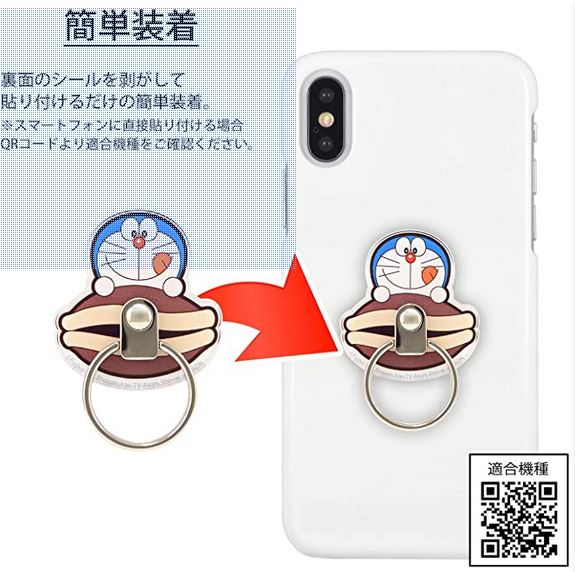
Leave a Reply